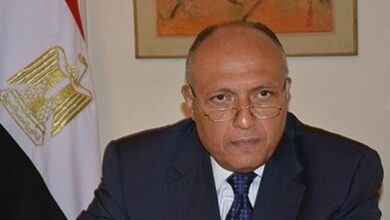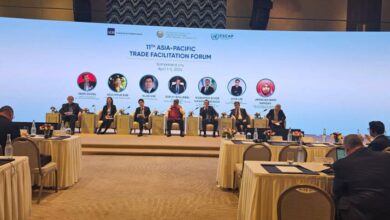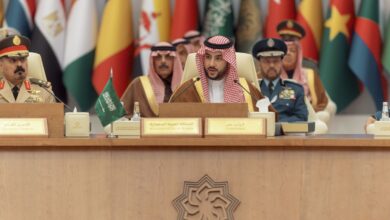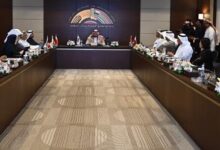Kazakhstan President Tokayev proposes key changes to economic policy to boost growth and diversify industries
By: Hazem Aabdo
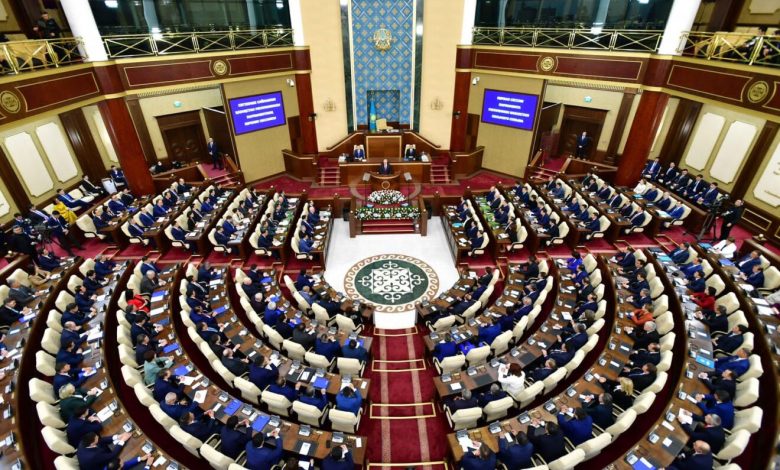
Kazakhstan is set to change the focus of its economic policy, said President Kassym-Jomart Tokayev in his address to the first session of the Kazakh Parliament on March 29, reported the Akorda press service, writes Assel Satubaldina in Election 2023, Nation.
Tokayev outlined the key steps to tackle the challenges facing the nation following the 19 March election to the Mazhilis, the lower chamber of the Parliament, and maslikhats, local representative bodies.
The creation of an open and self-sufficient market economy remains a top priority.
Encouraging business activity
“Small and medium-sized enterprises should become the driving force of the economy and the labor market. Much has been said about this, but there are still no significant shifts in this direction. Therefore, we need to change the focus in our economic policy,” said Tokayev in his one-hour-long televised address, widely anticipated by Kazakh citizens.
There are nearly 1.9 million small and medium-sized businesses operating in Kazakhstan, accounting for 33.5 percent of the nation’s gross domestic product, up from 24.9 percent in 2015.
Tokayev proposed launching a full range of measures to support small and medium-sized businesses that would enable them to “feel a significant role in the development of the country.”
“We need a new wave of entrepreneurs who can take responsibility for the economic progress of Kazakhstan. Businesspeople who can build a successful business without access to administrative resources, at the expense of entrepreneurial talent and diligence, should become its core. Such people exist in every region. It is important to give them the opportunity to develop their businesses within the country and genuinely help them,” said the President.
Kazakhstan’s existing economic model, he noted, heavily relies on investments, primarily in its abundant resource sector.
“In general, the government faces the task of attracting significant investment in key sectors of the economy, including foreign investment. They should give a tangible boost to the development of medium-sized businesses. There can be no red tape in this matter,” said Tokayev.
Fair and open competition
Protecting private property and ensuring a competitive market is a key priority moving forward, said the President. He urged the officials to continue the reforms of the judicial and law enforcement systems.
A comprehensive program to support small and medium businesses will help enterprises boost their competitiveness. At the same time, the decisions on financial support should be transparent.
“It is crucial that the selection of projects that will receive state support should be transparent. It is necessary to take into account the real socio-economic effectiveness of a project. In this regard, I instruct the government and MPs to develop new ways of developing medium-sized businesses because they play a key role in the development of the country’s economy,” Tokayev said.
Economic diversification and improvement of production potential
Diversifying Kazakhstan’s economy has long been on top of the national agenda, whose windfall oil and gas resources have supported substantial economic growth over the years.
Tokayev emphasized that a competitive economy is a diversified economy.
“The pandemic and the current geopolitical crisis have clearly shown that the commodity market is unstable. The days when people depended only on wealth and did not care about it are gone. The added value of underground resources must be maximized. It is very important to turn it into a quality and sought-after product. The previous industrialization failed to properly develop the non-oil sector. We still buy food and consumer goods from abroad. This is one of the main causes of rising inflation,” said Tokayev.
He also emphasized the importance of making full use of the country’s production potential.
“Kazakhstan’s economy is still dependent on the extraction of minerals. In other words, its structure is based on raw materials, while the country’s progressive development requires economic diversification. Undoubtedly, we also have our competitive advantages in the global market, which must be effectively used to solve current and strategic tasks,” he said.
Tokayev highlighted some of the acute problems accumulated in the subsoil use sector, including insufficient exploration works, a declining rate of replenishment of the mineral resource base, and the depletion of developed subsoil.
“It is necessary to use mineral resources efficiently and rationally. This requires the improvement of legislation and simplification of necessary procedures. Investments in the exploration and development of mineral deposits are of particular importance,” he added.
Kazakhstan’s economy has always been open to foreign trade and investment, said Tokayev. Fulfilling domestic needs, however, should be a top priority.
“First of all, we must develop the processing industry, oriented to the domestic market. The processing industry develops rapidly only through innovation and high technology. This is obvious. That is why Kazakhstan’s economy must be based on scientific achievements. It is not enough to conduct research and obtain a patent. It is necessary to use scientific discoveries in production. A new law should be adopted for the comprehensive development of science. I think the MPs will support this bill,” said Tokayev.
Demonopolization of the economy
Since the beginning of last year, Kazakhstan has been taking steps to demonopolize the economy. According to Tokayev, it is not an easy process, “requiring willpower and professionalism on the part of the government.”
“We need to introduce clear and effective instruments to ensure control over transfer pricing, international taxation, allocation of subsidies, and state resources. One of the first decrees I signed after my re-election as President was on measures to return illegally withdrawn assets to the state. The government and the Prosecutor General’s Office have already prepared a separate bill,” he said.
The bill, which the Parliament is expected to pass soon, envisions the use of funds solely for the development of the country.
“This also applies to budgetary expenditures. However, budget planning and execution leave much to be desired,” he added.
The draft of the new Budget Code will also be submitted to the Parliament in 2023, designed to address rising expenditures for servicing the national debt, reduce the volume of transfers from the National Fund and enhance the efficiency of the use of budget funds.
Upgrading the energy grid and infrastructure
The recent accidents at the country’s major energy facilities have revealed significant problems in the energy sector, particularly outdated infrastructure.
“You all know how this winter went. In the midst of winter, cities and towns in several regions were left without heat. The dilapidated energy infrastructure is practically non-functional. On my instruction, a new model for the development of the electricity market is being prepared. It is supposed to attract additional investment in this sphere. This document will also ensure maximum transparency in this area,” he said.
Three draft laws addressing problems in this sector will be considered by members of the Mazhilis.
Speaking about infrastructure development, Tokayev suggested adopting a National Infrastructure Plan until 2029. “We need to build our country’s infrastructure capacity,” said Tokayev, referring to numerous concerns in the housing sector and city development.
Food security
Though Kazakhstan possesses enormous agricultural potential, it still faces challenges in ensuring food security. Kazakhstan is known for its vast agricultural lands and has great potential for increasing food production. The country produces a variety of crops, including wheat, barley, corn, potatoes, vegetables, among others.
President Tokayev, however, questioned the performance of the agricultural sector in ensuring its citizens have access to safe and nutritious food.
“Frankly speaking, the agricultural industry does not fully fulfill this task. The policy in this area is inconsistent. Funds allocated by the state are spent ineffectively. There are many intermediaries between the producer and the consumer,” said Tokayev.
The President is adamant that programs such as Auyl – El Besigi (the village is the cradle of the country) and Auyl Amanaty (heritage of the village) will benefit the development of the agro-industrial sector.
As part of the Auyl – El Besigi project, 3,700 social and engineering infrastructure facilities have been modernized in more than 1,000 villages. Kazakhstan has allocated 143 billion tenge ($315 million) this year for more than 1,500 projects.
The Auyl Amanaty project envisions the provision of microloans to rural residents for five to seven years at an annual interest rate of 2.5%. The project aims to develop rural entrepreneurship through agricultural co-operation.
“It is necessary to take systematic measures to preserve soil fertility and improve it. Strengthening control is important for the effective use of agricultural land. Particular attention should be paid to increasing the volume of output and its diversification. Reforms in agriculture require quality laws,” Tokayev said.
Eureporter


